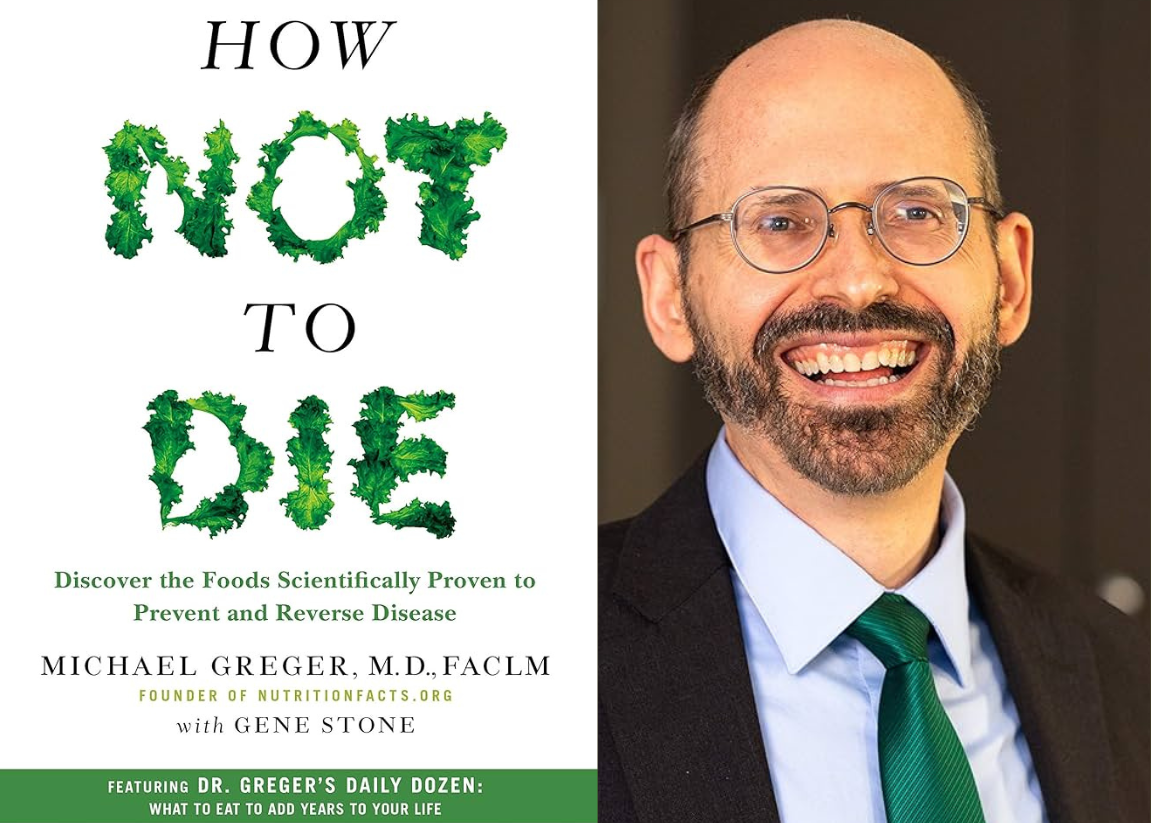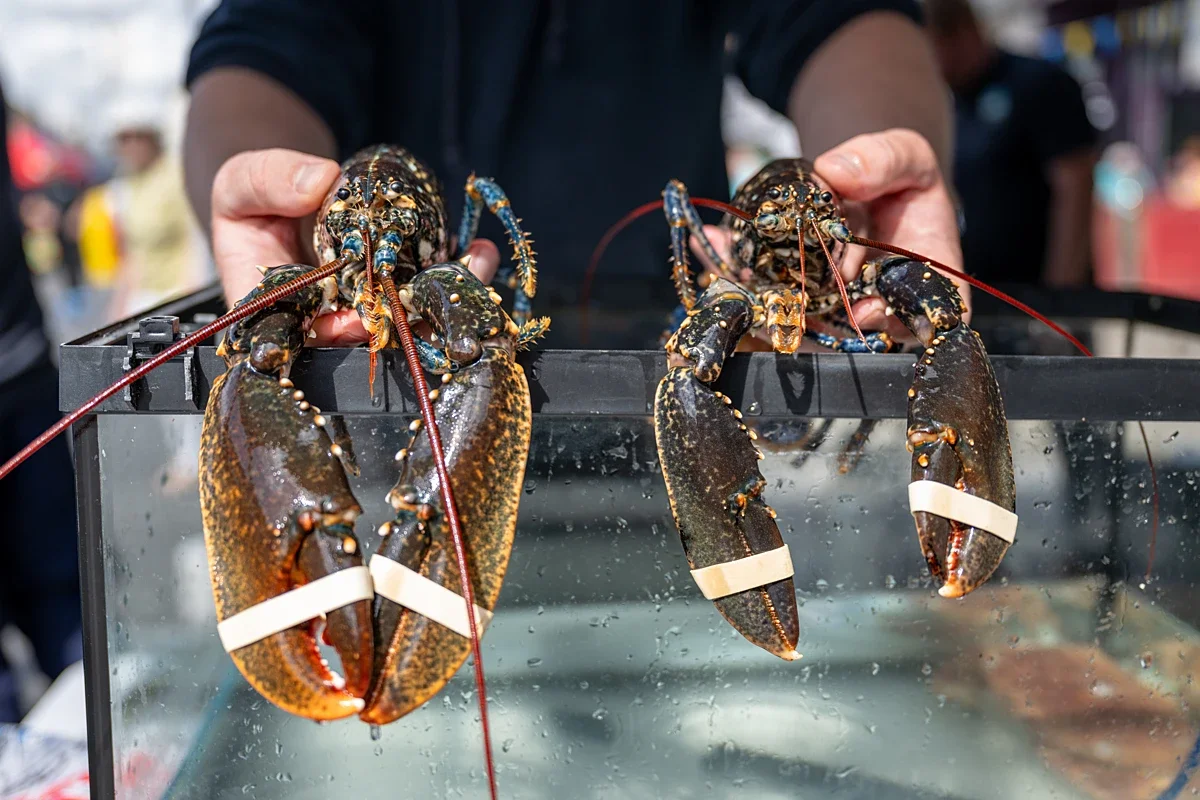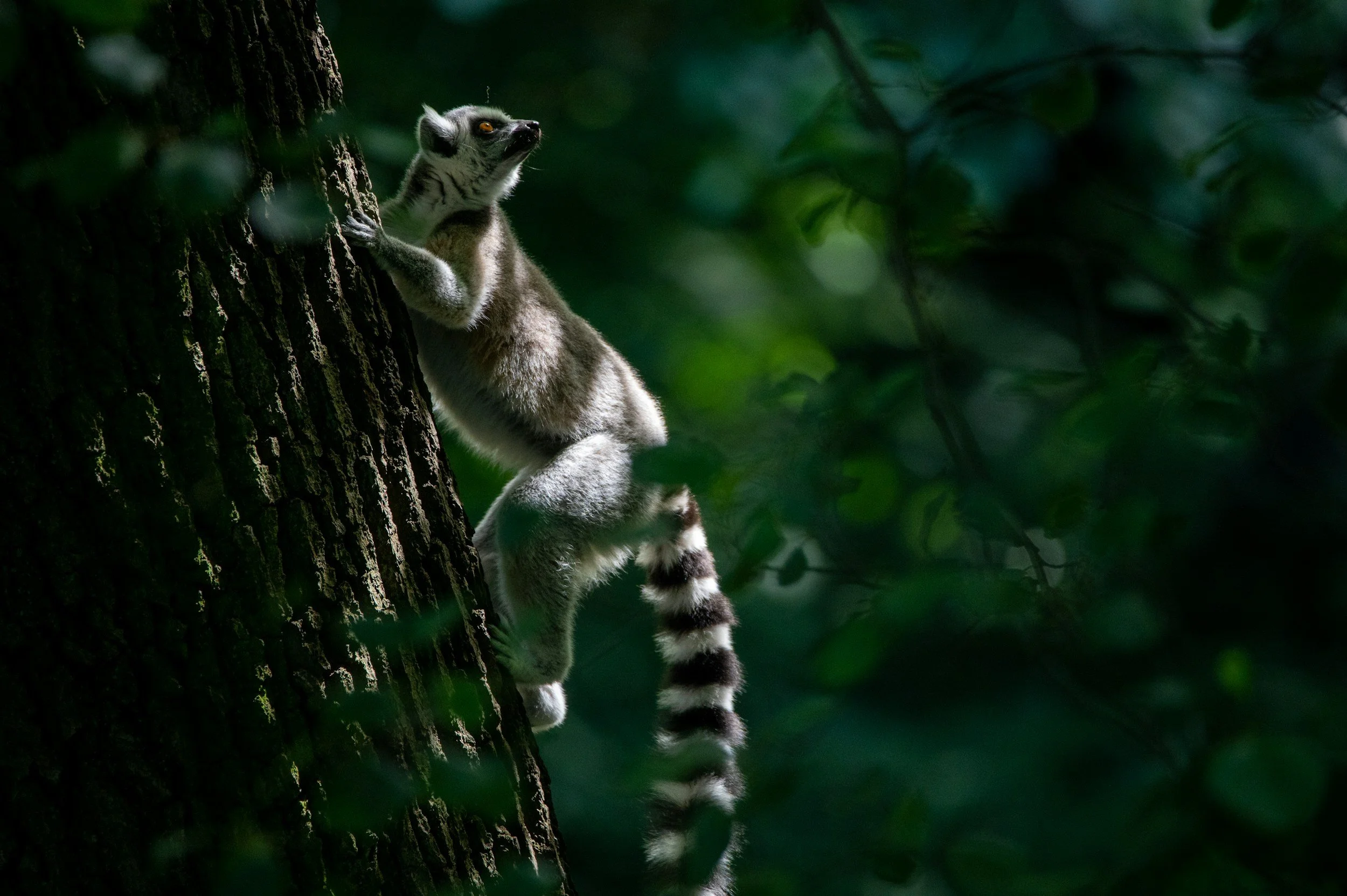Final 23 surviving Alamogordo chimpanzees to be moved to sanctuary
The retired research chimpanzees at the Alamogordo Primate Facility, where they were once used as test subjects, will soon be relocated to Chimp Haven sanctuary.
Credit: Chimp Haven
Nearly two dozen chimpanzees, living in a federally-owned laboratory in New Mexico, are being retired to a sanctuary in Louisiana, following decades of advocacy and legal action by animal protection groups.
The National Institutes of Health (N.I.H.) announced that the 23 chimpanzees will be transferred from the Alamogordo Primate Facility to Chimp Haven, a 200-acre forested primate sanctuary in the next few months.
For years, the N.I.H. had refused to release the chimps from the Alamogordo Primate Facility in New Mexico, claiming the animals were too frail or sick to be moved. In 2021, multiple groups sued the N.I.H., arguing that the agency’s refusal violated the Chimpanzee Health, Improvement, Maintenance, and Protection (CHIMP) Act.
Although a federal judge ruled in favor of the animal advocacy groups the N.I.H. still refused to transfer the chimpanzees to a sanctuary and appealed the decision. According to the N.I.H., the decision to relocate the chimpanzees to a sanctuary is not because its assessment of the chimps’ health has changed, but due to staffing issues at the Alamogordo facility.
“It brings tears to my eyes to think that they’re going to be given the opportunity to live in sanctuary,” said Kathleen Conlee, vice president of animal research issues at the Humane Society of the United States, which was one of the groups that sued the N.I.H. over the fate of the Alamogordo chimps. “We applaud N.I.H. for whatever reason brought them to this decision and look forward to seeing the day the chimps arrive at Chimp Haven.”
Animal Protection New Mexico, which was also among the organizations that sued the N.I.H. and has been pushing for the chimps’ relocation, praised the decision. “These deserving chimpanzees have endured so much for so long, and their arrival in sanctuary will represent the completion of the federal government’s obligation and commitment to their retirement,” Elisabeth Jennings, the organization’s executive director, told the New York Times.
Specie Unite, who also rallied its supporters and kept the pressure on through expert interviews and articles, celebrated the news: “The Species Unite community came together to send nearly 13,000 letters to the National Institutes of Health and to N.I.H. Director Dr. Monica Bertagnolli, urging them to do the right thing. We are deeply moved to see our collective call for justice answered,” said Santina Polky, Species Unite Campaigns and Development Director. “Thank you to everyone who took the time to speak out for these chimps and helped make this victory possible. Because of your compassion, 23 senior chimps will finally experience freedom and safety for the first time.”
Credit: Chimp Haven
A long fight
In 2013, the US Fish and Wildlife Service (FWS) listed chimpanzees as endangered, restricting the majority of invasive animal research on the species. This was followed by an announcement in 2015 by the US National Institutes of Health (NIH) that it would end its support of biomedical research on chimpanzees and retire the remaining great apes to a federally funded sanctuary in Louisiana called Chimp Haven.
However, in 2019 the N.I.H. reversed that initial decision, claiming that the chimpanzees remaining at the Alamogordo Primate Facility in New Mexico had been diagnosed with “life-threatening, systemic diseases” that made relocation impossible. This was disputed by many animal experts.
Since then, the chimps have remained at Alamogordo, the site where they previously endured biomedical testing. They live in conditions without access to plant life or a natural environment, housed either in solitary confinement or small, single-gender groups.
On Thursday, six years after its reversal, the NIH announced that several staff members at the remote Alamogordo facility would soon retire, creating staffing shortages that prompted a decision to finally transfer the chimps due to concerns over their care.
Since the 2019 decision, 21 chimpanzees have died at the facility. But the surviving chimps, ranging in age from 34 to 62, will now spend their remaining years at Chimp Haven, a 200-acre forested environment tailored to the needs of chimpanzees once used in biomedical research.
“Our celebration is only undercut by the knowledge that today’s announcement comes too late for 21 chimpanzees who passed away during the five years since NIH reversed its initial decision,” said Sara Amundson, president of the Humane Society Legislative Fund. “The agency’s foot-dragging condemned these incredible animals—who had endured a lifetime of suffering—to spend their final years and days in a sterile laboratory with barren outdoor enclosures—the very same facility in which they were subjected to harmful experiments.
“Although we are heartbroken that those 21 chimpanzees were never able to experience the freedom of sanctuary life at Chimp Haven, we are overjoyed that the 23 remaining at the laboratory will soon have that chance,” Amundson continued.
Chimp Haven is located on 200-forested acres outside of Shreveport, Louisiana. Credit: Chimp Haven
What’s next?
Rana Smith, president and chief executive officer of Chimp Haven, said the sanctuary hopes to start relocating the chimps early next year. “We’ve got a lot of planning to do,” said Smith. “We really don’t know what kind of shape these animals are in.”
To accommodate all the chimps, Smith said that additional construction would be necessary. "Earlier this year, Chimp Haven proactively developed architectural plans for expansion in case additional NIH chimpanzees became eligible to transfer to the sanctuary," Smith said. "We anticipate the expansion will cost a minimum of $4 million, which we'll need to raise from private supporters since NIH does not support construction costs."
Despite the challenges, Smith remains positive. "We're confident we can safely transition them to the sanctuary," she says. "We're excited to give them the opportunity to spend the rest of their lives in a beautiful, forested setting among a colony of friends living the Chimp Life – they deserve it."
We Have A Favor To Ask…
Species Unite amplifies well-researched solutions to some of the most abusive animal industries operating today.
At this crucial moment, with worldwide momentum for change building, it’s vital we share these animal-free solutions with the world - and we need your help.
We’re a nonprofit, and so to keep sharing these solutions, we’re relying on you - with your support, we can continue our essential work in growing a powerful community of animal advocates this year.






